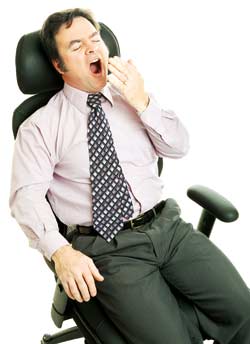 Sleep deprivation is a disorder that occurs in an individual who persistently fails to obtain sufficient night-time sleep. This sleep is required to remain alert during the day. The primary symptom of sleep deprivation is sleepiness. However, sleeping during the day seldom helps make up for the lost slumber.
Sleep deprivation is a disorder that occurs in an individual who persistently fails to obtain sufficient night-time sleep. This sleep is required to remain alert during the day. The primary symptom of sleep deprivation is sleepiness. However, sleeping during the day seldom helps make up for the lost slumber.
What causes sleep deprivation?
- Not sleeping on time because of socialising, watching television or reading. In this case, the person chooses to forego sleep to engage in tasks that are not necessarily important.
- Certain illnesses such as cold and cough tend to wake you up many times in the night, which affects sleep quality.
- People working in shifts have a disrupted sleep-wake cycle as is the case with frequent travellers and those working across time zones.
- Sleep problems such as sleep apnoea, snoring and periodic limb movement disorder.
- Some drugs used to treat disorders such as epilepsy or attention deficit hyperactivity disorder [ADHD] may cause insomnia.
- External factors such as temperature [too hot or cold], lighting, a snoring bed partner and noise.
- Drinking coffee or smoking cigarettes close to bedtime stimulates the nervous system and makes sleep less likely or robs one of sound sleep.
- Having a newborn in the house. Infants often make it difficult for parents and other members of the house to fall asleep as they themselves stay up crying or playing.
What are its symptoms?
- Constant yawning
- Increased chances of dozing off when not active for a while
- Waking with a groggy feeling that continues through the day
- Poor concentration and mood changes.
How does sleep deprivation affect a person?
The primary effect of sleep deprivation is excessive day-time sleepiness. Other effects include irritability, fatigue, lack of concentration, poor attention, lethargy, restlessness, digestive problems, increased appetite, hyperacidity, high blood pressure, obesity and diabetes. Severe sleep deprivation increases one’s risk of mortality.
What are the coping strategies?
There is no substitute for a good night’s sleep. Thus, the only way to overcome this lack is getting sufficient sleep at night. In addition, the following tips will help you recover from sleep debt faster.
- Follow a regular time for sleeping and waking up.
- Go to bed only when drowsy.
- Do not plan the next day while going to bed.
- Avoid things that trigger anxiety such as quarrels or arguments or watching a horror movie, close to bed time.
- Avoid watching television late at night as exposure to light postpones the sleep further. A dark, quiet room is conducive to sleep. Listening to light, soothing music before bed time makes drifting into sleep easier.
- Avoid consuming tea or coffee in the evening.
- Do not consume alcohol to induce sleep as it has the opposite effect. Alcohol dehydrates you and though you may not realise it, but it affects the quality of your sleep. That’s why, you seldom wake up refreshed the next day after a night of heavy drinking.
This was first published in the February 2012 issue of Complete Wellbeing.
 Sleep deprivation
Sleep deprivation
